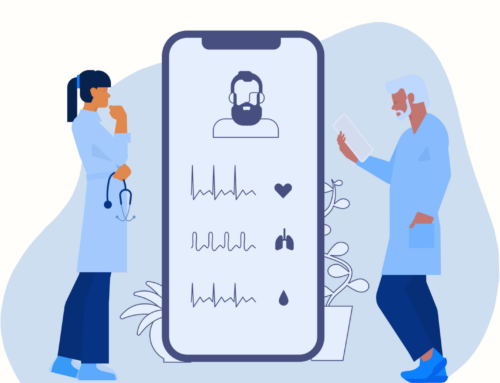 The HIPAA Privacy Rule’s “Right of Access” provision requires providers to make patient medical records available for viewing, inspecting, and copying. In early 2019, the Department of Health and Human Services’ (HHS) Office for Civil Rights (OCR) launched a HIPAA Right of Access enforcement initiative. A recent study by citizen.com revealed that since the initiative was launched, provider Right of Access compliance has increased.
The HIPAA Privacy Rule’s “Right of Access” provision requires providers to make patient medical records available for viewing, inspecting, and copying. In early 2019, the Department of Health and Human Services’ (HHS) Office for Civil Rights (OCR) launched a HIPAA Right of Access enforcement initiative. A recent study by citizen.com revealed that since the initiative was launched, provider Right of Access compliance has increased.
How Did the Study Measure Provider Right of Access Compliance?
To measure provider right of access compliance, Citizen compiled a scorecard for 820 healthcare providers. A wide range of healthcare providers were assessed for the study, from single physician practices to large, integrated healthcare delivery systems.
Do you have an effective HIPAA compliance program? Find out now by completing the HIPAA compliance checklist.
The “grade” Citizen assigned to each provider on the card reflects the providers’ responses to patient requests for access for their healthcare data from the period of 2/10/19 through 2/13/20. The patients who made the requests for access were Citizen users. Based on the feedback these users submitted to Citizen as to the timeliness of the provider’s response, Citizen developed a “compliance score” for each provider. The score ranges from a low of “1” to a high of “5.” A 1-star rating represents a non-HIPAA compliant response. 2-stars were awarded when requests were eventually resolved satisfactorily, but only after multiple escalations to supervisors. A 3-star rating was given when the request was satisfied with minimal intervention, and a 4-star rating was given to providers that are fully compliant and that gave a seamless response. A 5-star rating was given to those providers who, in providing access, went above and beyond the requirements of HIPAA.
What Were the Results of the Right of Access Compliance Study?
Under the scorecard, only 27% of providers received a “1”; that is, only 27% were not compliant with the HIPAA Right of Access. This figure is a significant improvement from the previous scorecard, which revealed that a majority of providers – 51% – were not compliant with the Right of Access. In addition, the percentage of providers awarded 4 stars for their responses increased from 40% to 67%, and the percentage of providers awarded 5 stars increased from 20% to 28%.
Not only are more people being given more timely access to their records, they are paying less for that access as well. Under the Right of Access, providers may charge patients a reasonable, cost-based fee (i.e., costs of reproduction of records, including copying costs and mailing costs) for record production. Only 6% of the 820 healthcare providers on the scorecard actually charged a fee.
In addition, the latest scorecard information reveals that providers are not subjecting patients to burdensome paperwork requirements as much as in past years. In previous studies, many healthcare providers required patients to complete a standard form, yet this year, most providers accepted any form of written request and did not require patients to complete a particular form before the request was processed.
Citizen attributes the improvements to right of access compliance not only to the enforcement initiative, but to new rules recently published by HHS’ Centers for Medicare and Medicaid Services and the HHS’ Office of the National Coordinator for Health IT, which makes it easier for patients to obtain copies of their healthcare data.
For more information on past studies please click here.









